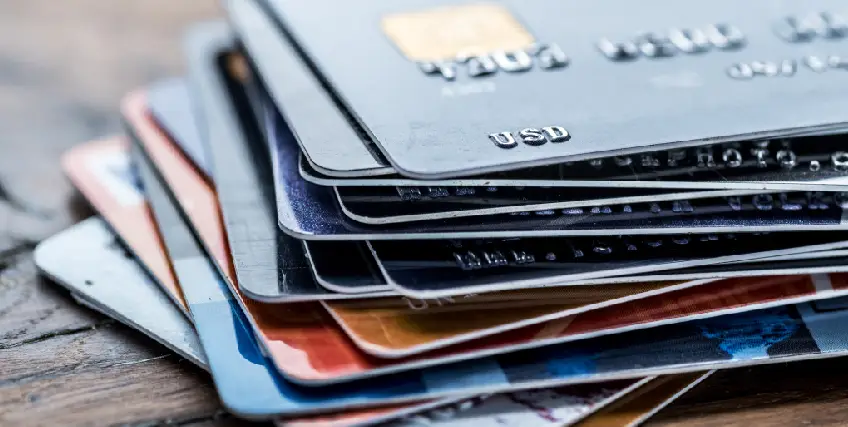5 Ways Small Business Owners Can Maximize Credit Card Rewards
March 28, 2025 | Last Updated on: March 31, 2025

A credit card for small business can significantly help entrepreneurs manage expenses, streamline cash flow, and build credit. According to WalletHub, nearly 42% of small businesses use credit cards as their primary funding vehicle. Beyond managing expenses, choosing the best business credit cards for new business helps owners earn valuable rewards. These rewards can offset operating costs, fund travel, or reinvest back into the business. Understanding how to optimize these benefits ensures entrepreneurs make smart financial decisions, helping their businesses grow sustainably. Small businesses frequently leverage rewards for maximum savings, choosing from the best business cards for small business to align with their unique spending needs.
How does a business credit card actually work?
A credit card for small business functions much like a personal credit card but offers benefits tailored to business needs. Owners receive a credit line they can use to cover expenses like supplies, travel, and utilities. These cards typically come with rewards such as cashback, travel points, or discounts on business-related purchases. Payments are made monthly, and responsible management helps build business credit. Selecting among the best new business credit cards ensures favorable terms like low annual fees and high rewards. Moreover, managing these cards wisely enhances financial discipline, improves cash flow management, and separates personal and business finances effectively.
Why Small Business Owners Should Use Rewards on Business Credit Cards
Leveraging rewards from a credit card for small business provides tangible financial advantages. Entrepreneurs gain cashback, travel points, or discounts on frequent expenses, reducing operational costs. For example, using the best business credit cards for new business can provide critical savings during startup phases. Rewards earned can be reinvested into essential business activities, such as marketing or inventory. Additionally, consistent card usage and timely payments build strong credit history, crucial for securing future financing. Overall, strategically using rewards from the best business cards for small business helps small business owners stretch budgets further, fostering sustainable growth.
Step 1: Optimize Spending Categories
To maximize rewards from a credit card for small business, carefully identify and optimize your spending categories. Many business credit cards offer special rewards for categories such as office supplies, travel, fuel, and advertising. By choosing one of the best business credit cards, you can align your spending with categories offering the most valuable rewards. For instance, a business frequently spending on advertising should look for cards offering extra points on marketing expenses. Regularly assessing your monthly statements helps spot the highest spending categories, allowing you to adjust your strategy accordingly. Utilizing analytics tools can also pinpoint spending patterns more effectively. Strategically aligning expenses with card reward categories can increase reward earnings significantly. Ultimately, businesses that regularly monitor and adapt their spending habits can maximize the full potential of their best new business credit cards.
Step 2: Leverage Sign-Up Bonuses
Sign-up bonuses represent one of the quickest ways to earn substantial rewards from a credit card for small business. These introductory offers typically involve earning many points or significant cashback after meeting certain spending requirements within the first few months. Businesses anticipating large expenses can strategically plan purchases to hit these targets quickly. Selecting among the best business credit cards available ensures that bonuses align with actual business expenses, making it easier to achieve these thresholds. Forbes suggests timing significant investments like equipment purchases or annual subscriptions with new credit card applications to effortlessly secure valuable sign-up bonuses. Carefully reading terms and understanding the minimum spending requirement ensures the offer is beneficial and realistic. Leveraging these initial bonuses can greatly reduce upfront costs and increase available capital for other critical areas of your business.
Step 3: Issue Employee Cards
Providing employees with individual cards linked to your main credit card for small business significantly boosts reward accumulation. Purchases made by employees contribute directly to your reward balance, enhancing overall returns. Moreover, employee cards help simplify bookkeeping by consolidating transactions into a single statement, making expense tracking straightforward. Business credit cards offering free additional cards ensure cost-effective management. Additionally, most card issuers allow business owners to set specific spending limits, providing greater financial oversight.
Employee cards streamline expense management, improve transparency, and reduce administrative burdens. Regularly reviewing employee transactions further ensures appropriate usage and aligns spending with reward categories, maximizing the efficiency of your business finances. Issuing employee cards ultimately creates greater accountability and boosts your overall rewards, enhancing financial efficiency.
Step 4: Redeem Rewards Strategically
Smart redemption of rewards from a credit card for small business significantly enhances their value. Different redemption options like statement credits, travel bookings, or gift cards often have varying values. It's crucial to compare options and select the one offering the best return. Generally, travel-related redemptions such as flights and hotel bookings tend to offer higher value compared to straightforward cashback or statement credits. Carefully evaluating redemption options and choosing the highest value methods significantly boosts the benefit businesses derive from their cards. Regularly reviewing redemption policies and staying updated on promotional offers can further enhance these rewards. Flexibility offered by business cards ensures that business owners can adapt their redemption strategy based on evolving business needs. Strategically redeeming rewards can effectively reduce costs and provide greater financial flexibility for your business.
Step 5: Utilize Partner Programs
Partner programs available through many of the business credit cards amplify reward values considerably. Card issuers often collaborate with airlines, hotels, retail chains, and software providers, offering enhanced rewards or exclusive discounts. Leveraging these partnerships can significantly increase reward earning potential and provide additional business benefits like priority services or extended warranties. Utilizing partner programs can optimize the rewards earned, often multiplying standard redemption values. Businesses frequently traveling or making regular purchases from specific vendors should actively leverage these partner offerings to maximize benefits.
Understanding your card’s specific partner network helps strategically align business expenses to take full advantage of these enhanced rewards. By consistently monitoring and utilizing these partnerships effectively, small businesses can significantly reduce operational expenses and increase their overall financial returns from a credit card for small business.
Conclusion
A well-managed credit card for small business is more than just a financial tool—it's a strategic asset. By optimizing spending categories, leveraging sign-up bonuses, issuing employee cards, redeeming rewards smartly, and utilizing partner programs, small business owners can dramatically maximize their returns. You need to select from the best business credit cards for new business and thoughtfully manage reward programs. This would help businesses reduce expenses, invest in growth, and improve financial health. Ultimately, smart credit card usage becomes integral to a small business's financial strategy, significantly boosting overall profitability and sustainability.
Frequently Asked Questions
How can I choose the best credit card for small business?
Select a card matching your business's frequent expenses, offers flexible rewards, and has favorable terms like low interest rates and minimal fees. Consider the best business cards for small business offering robust sign-up bonuses and valuable partner programs. Evaluate your typical spending categories—whether travel, office supplies, or advertising—to maximize reward accumulation efficiently.
Are rewards from a credit card for small business taxable?
Generally, credit card rewards aren't taxable if earned through regular spending. However, sign-up bonuses or points earned via promotional activities might have tax implications. It's wise to consult a tax professional and choose a credit card for small business that offer straightforward reward structures to avoid complex tax scenarios.
Can using a business credit card help build credit?
Responsible use of a credit card for small business significantly helps establish and build business credit. Consistent payments, maintaining low balances, and timely bill management positively impact credit scores. Selecting a good business credit card can help small businesses establish credit quicker, aiding future financial opportunities.
What's the difference between business and personal credit cards?
Business credit cards typically offer higher credit limits, specialized reward categories for business expenses, and detailed expense tracking features. Unlike personal cards, using a business credit card helps separate business and personal finances clearly, simplifying financial management.
Can I issue multiple employee cards on one business account?
Most issuers of a credit card for small business allow for multiple employee cards. These usually come without extra fees, and spending can be tracked individually. Opting for a business credit card offering this feature simplifies expense management and enhances reward earning opportunities.




